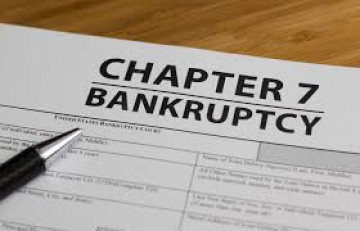Understanding Defamation in the Workplace: Protecting Your Reputation
In today’s dynamic professional environment, individuals may occasionally face defamation or the spread of false damaging statements by coworkers. Such situations can profoundly impact an employee’s reputation, mental well-being, and career trajectory. Recognizing defamation and understanding the appropriate steps to protect oneself is essential for maintaining a positive workplace atmosphere and safeguarding one's personal and professional dignity.
What Constitutes Defamation Among Coworkers?
Defamation refers to the act of making false statements about another person that damage their reputation. In a workplace setting, this may manifest as rumors, slanderous remarks, or misleading messages aimed at undermining a coworker’s credibility or integrity. These false claims might circulate verbally, in written communications, or even through digital means like emails, social media, or messaging platforms.
It is important to distinguish defamation from legitimate criticism or constructive feedback. Defamation involves statements that are knowingly false or made recklessly without regard to their truth. When these falsehoods cause harm to an individual’s professional image or personal character, they may warrant legal scrutiny and remedies.
Immediate Steps to Take When Defamation Occurs
If you discover that coworkers are spreading false damaging statements about you, prompt and systematic action is vital. Documenting every detail meticulously can serve as a fundamental step in defending your reputation and potentially pursuing legal action if necessary.
- Record the exact content of the statements, including dates, times, locations, and the manner in which they were delivered.
- Identify all witnesses who may have heard or seen the defamatory remarks or communications.
- Preserve any written or electronic evidence, such as emails, texts, social media posts, or voice messages that contain the defamatory content.
- Avoid retaliating or making confrontational remarks, as this might complicate future investigations.
By maintaining thorough records, you establish credibility and create a clear evidentiary trail that can support your claims if the issue escalates.
Engaging Human Resources for Resolution
The Human Resources (HR) department serves a crucial role in addressing workplace conflicts, including instances of defamation. Once you have compiled your documentation, reporting the situation to HR ensures that the matter is officially recognized and can be investigated.
An effective HR investigation typically involves:
- Interviewing all involved parties including the complainant, accused coworkers, and any witnesses.
- Reviewing collected evidence such as emails, memos, and recorded statements.
- Ensuring confidentiality to protect all parties from unwarranted exposure or retaliation.
- Taking corrective actions if defamation is confirmed, which may include written warnings, trainings, or disciplinary measures.
Additionally, HR must ensure that any defamatory remarks or records are corrected or removed from your personnel files to prevent ongoing damage to your professional record.
Legal Rights and Possible Actions to Protect Your Reputation
False claims that harm your business or personal reputation may justify taking legal action. The laws governing defamation vary by jurisdiction but generally provide recourse for victims to restore their reputation and recover damages under certain conditions.
Before pursuing legal remedies, it is advisable to consult with a specialized attorney who can help evaluate the strength of your case and guide you through appropriate legal channels. Potential actions include:
- Sending a cease-and-desist letter demanding the immediate cessation of defamatory behavior.
- Filing a formal complaint or lawsuit to seek compensation for reputational harm.
- Requesting public retractions or corrections in cases where false information has been disseminated widely.
- Negotiating settlements or alternative dispute resolutions to avoid protracted legal proceedings.
Legal proceedings concerning workplace defamation can be intricate and demanding, thus professional legal counsel ensures your interests are properly protected.
Preventative Measures to Minimize Risks of Defamation
While addressing existing defamation issues is critical, institutions and employees alike should take proactive steps to prevent such scenarios. Establishing a respectful communication culture and clear policies against harassment and defamation help cultivate a healthy work environment.
- Implement comprehensive workplace conduct policies that clearly define unacceptable behaviors, including defamation.
- Conduct regular training for employees and management on respectful communication and conflict resolution.
- Promote open dialogue channels where employees can report concerns without fear of retaliation.
- Encourage management to lead by example in maintaining professionalism and integrity.
Early intervention and open communication often prevent misunderstandings from escalating into harmful defamation disputes.
The Role of Documentation and Evidence Preservation
Documenting incidents meticulously is paramount in building a defensible position against defamatory claims. It involves maintaining detailed logs and safeguarding all forms of evidence.
- Create a written record immediately after encountering or learning about defamatory statements.
- Store copies of all relevant digital correspondence securely.
- Keep a diary or journal outlining ongoing incidents and their impact on your work and emotional well-being.
- Gather statements from witnesses supportive of your account.
This documentation not only supports internal investigations but is also invaluable if legal actions become necessary.
Seeking Professional Legal Support
In complex defamation cases, expert legal advice is indispensable. Attorneys specialized in workplace law and defamation understand the intricacies involved in proving false claims and obtaining remedies.
Professional legal support can help by:
- Evaluating the merits of your case and potential legal outcomes.
- Guiding the preparation and submission of official complaints or lawsuits.
- Negotiating with opposing parties to secure favorable resolutions.
- Protecting your rights throughout all legal procedures.
If you require proper legal help, do not hesitate to reach out through communications found in our bio or by sending a private message. Prompt engagement with legal professionals can significantly affect the outcomes of your case.
Maintaining Personal Resilience and Professionalism
Being the target of false damaging statements can be emotionally taxing, but sustaining personal resilience and professionalism is crucial. Staying calm, focused, and composed not only strengthens your case but also preserves your dignity and workplace relationships.
Consider the following approaches to navigate these challenges:
- Seek emotional support from trusted colleagues, friends, or professional counselors.
- Avoid engaging in gossip or retaliatory behavior.
- Focus on maintaining high-quality work performance and positive interactions.
- Stay informed about your rights and company policies related to workplace harassment and defamation.
Developing a resilient mindset helps in overcoming the negative impacts of defamation and moving forward constructively.
Summary of Key Action Points When Facing Workplace Defamation
Handling defamation requires a methodical and informed approach. Below is a concise summary of essential steps to undertake:
- Document all instances of the defamatory statements comprehensively.
- Report the issue promptly to your organization’s Human Resources department.
- Preserve all physical and digital evidence meticulously to support investigations.
- Seek professional legal advice to understand your rights and possible remedies.
- Maintain professionalism and personal well-being throughout the process.
Workplace defamation is a serious issue that can have lasting repercussions on an individual’s career and personal life. By understanding what constitutes defamation, taking immediate and documented action, engaging with HR, and pursuing legal avenues when necessary, employees can effectively protect their reputations.
At Legal Marketplace CONSULTANT, we emphasize the importance of handling defamation cases with care and professionalism. Should you encounter false damaging statements at work, remember that proper documentation, timely reporting, and expert legal support are your strongest allies in defending your good name.
For further guidance or legal assistance, feel free to contact us through communications in our bio or send a private message. Protect your reputation – it is one of your most valuable assets.
Legal Marketplace CONSULTANT is a leading legal firm specializing in comprehensive legal services for individuals and businesses. Our team comprises experienced attorneys, legal advisors, and consultants dedicated to protecting your rights and guiding you through complex legal matters.































